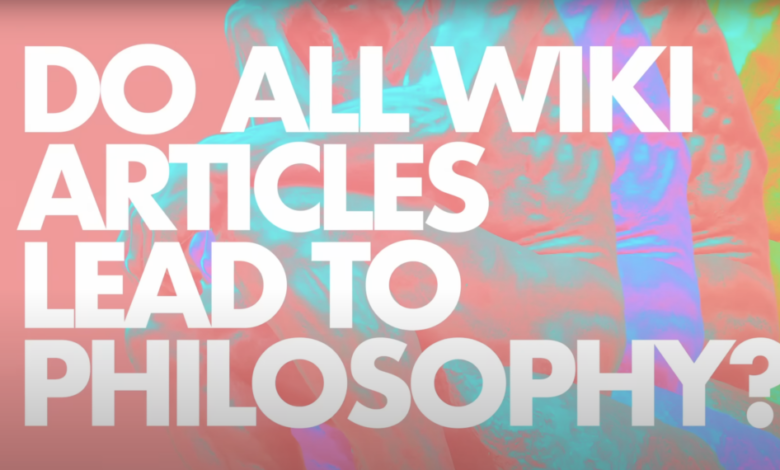Do All Roads Lead to Philosophy on Wikipedia?: They Do About 97.3% of the Time

Pull up the Wikipedia page for Mariya Takeuchi’s “Plastic Love,” the 1984 single now known for re-popularizing the genre of Japanese “city pop.” Then click the first of its links (not related to the language of the article itself), which leads to Takeuchi’s own page. If you keep following that same procedure, you’ll continue on to City Pop, then Japanese Pop Music, then Popular Music. Keep drilling down, and you’ll pass the very concepts of music and sound, then enter the realms of physics, the scientific method, logical propositions, and the philosophy of language. This is one example provided by the video above from YouTuber Not David, which investigates whether all roads on Wikipedia eventually lead to philosophy.
There is, of course, a Wikipedia page about this, called “Getting to Philosophy.” “Following the first hyperlink in the main text of an English Wikipedia article, and then repeating the process for subsequent articles, usually leads to the Philosophy article,” it says. “In February 2016, this was true for 97% of all articles on Wikipedia (including this one).” As for the rest, they “lead to an article without any outgoing wikilinks, to pages that do not exist, or get stuck in loops.” This is actually the case with the path starting from “Plastic Love,” after Philosophy of Language goes in circles around concepts, abstraction, and logic itself, never quite reaching Philosophy proper.
Or at least that’s what happened for me today; it could go differently tomorrow, or even a few seconds from now. Ever since Wikipedia went live in 2001, its main difference from other encyclopedias has been that it’s constantly changing, and the rate of that change has only increased over time. The “philosophy game,” as Not David calls it, is at all times subject to breakage, but also to un-breakage. At normal times, Orange Juice to Philosophy takes thirteen steps, Apple Juice to Philosophy takes fifteen steps; both the Calgary Flames and Edmonton Oilers lie sixteen steps from Philosophy. But things go haywire if someone goes and, say, re-orders the links on the Awareness article so Psychology comes first.
These things happen: Wikipedia is, after all, the encyclopedia that anyone can edit. And as you can see (at least as of this writing), Awareness now links first to Philosophy again. These changes play havoc with the efforts of anyone trying to map out the connections between one part of Wikipedia and another, as Not David does in this video. But they don’t alter the fundamental principles of network design, which his analysis illuminates. As with the corpus callosum, which connects the two hemispheres of the human brain, Philosophy is less important for what directly connects to it than for its own function as a connector. And indeed, haven’t philosophers always wanted to know how everything fits together?
Related content:
An Interactive Visualization of the Stanford Encyclopedia of Philosophy
A Data Visualization of Modern Philosophy, 1950–2018
Listen to Wikipedia: A Web Site That Turns Every Wikipedia Edit Into Ambient Music in Real Time
Introduction to Philosophy: A Free Course
Based in Seoul, Colin Marshall writes and broadcasts on cities, language, and culture. His projects include the Substack newsletter Books on Cities and the book The Stateless City: a Walk through 21st-Century Los Angeles. Follow him on Twitter at @colinmarshall or on Facebook.




